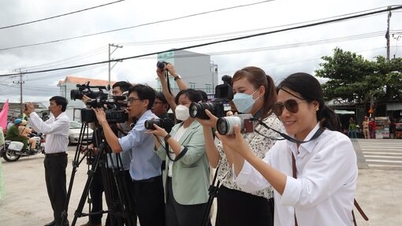Extreme heat and erratic rains caused by climate change are causing a surge in dengue fever cases across large parts of Asia, experts warn.
Taiwan has been experiencing a large-scale dengue outbreak since June, with cases surging in the south, according to an article in the Nikkei Asia on November 15. As of November 6, the number of cases in the territory reached 21,900, marking the second largest dengue outbreak in 10 years. Local health authorities believe that unusually hot temperatures and the full resumption of tourism since last fall may have been among the causes of the dengue outbreak.
In South Asia, Bangladesh has recorded more than 1,000 deaths, nearly four times the total number of deaths from the disease last year.
Bangladesh is facing its worst outbreak of dengue fever ever. Dengue fever usually occurs in the country's densely populated urban areas. However, this year, the disease has spread throughout the country.
Another note is that the number of cases usually increases during the rainy season from July to September every year, but this year the epidemic started appearing from the end of April.
In Southeast Asia, which has been hit by widespread heat waves over the past summer months, Thailand has seen a threefold increase in dengue cases so far this year compared to the same period last year. Meanwhile, Malaysia has seen a double-digit increase in dengue cases compared to the same period last year.
There are concerns that the dengue outbreak in Southeast Asia could spread to other countries around the world, mainly due to cross-border travel as many countries resume tourism after the Covid-19 pandemic. There are also concerns that dengue could impact the post-pandemic economic recovery of affected countries.
Dengue fever was once considered a disease that was endemic mainly in tropical and subtropical regions. However, cases have been reported in other parts of the world , including Japan, in recent years. Some experts believe that climate change is one of the causes of this change. The World Health Organization (WHO) said that the world recorded 4.2 million dengue cases in 2022, eight times higher than the figure in 2000.
Dengue fever can cause high fever, headaches, vomiting, muscle pain, and in the most severe cases, massive bleeding, which can lead to death. There is currently no antiviral drug or specific treatment for the disease. According to Nikkei Asia , a dengue vaccine produced by Japanese pharmaceutical company Takeda has been approved for use in Thailand, Indonesia, the European Union and several other countries. However, most countries in the world do not have access to the vaccine. Therefore, the main prevention measure is to avoid mosquito bites.
Minh Hoa (t/h according to VTV, Tin Tuc newspaper)
Source

































![[Photo] The 9th Congress of the Party Committee of the Office of the President, term 2025-2030](https://vphoto.vietnam.vn/thumb/1200x675/vietnam/resource/IMAGE/2025/6/20/78e7f27e8c4b4edc8859f09572409ad3)

























![[Maritime News] Wan Hai Lines invests $150 million to buy 48,000 containers](https://vphoto.vietnam.vn/thumb/402x226/vietnam/resource/IMAGE/2025/6/20/c945a62aff624b4bb5c25e67e9bcc1cb)


























![[VIDEO] - Quang Nam Business Association and the mission of creating a development environment](https://vphoto.vietnam.vn/thumb/402x226/vietnam/resource/IMAGE/2025/6/21/098925da24ac4f73a023890b30c5196f)


















Comment (0)